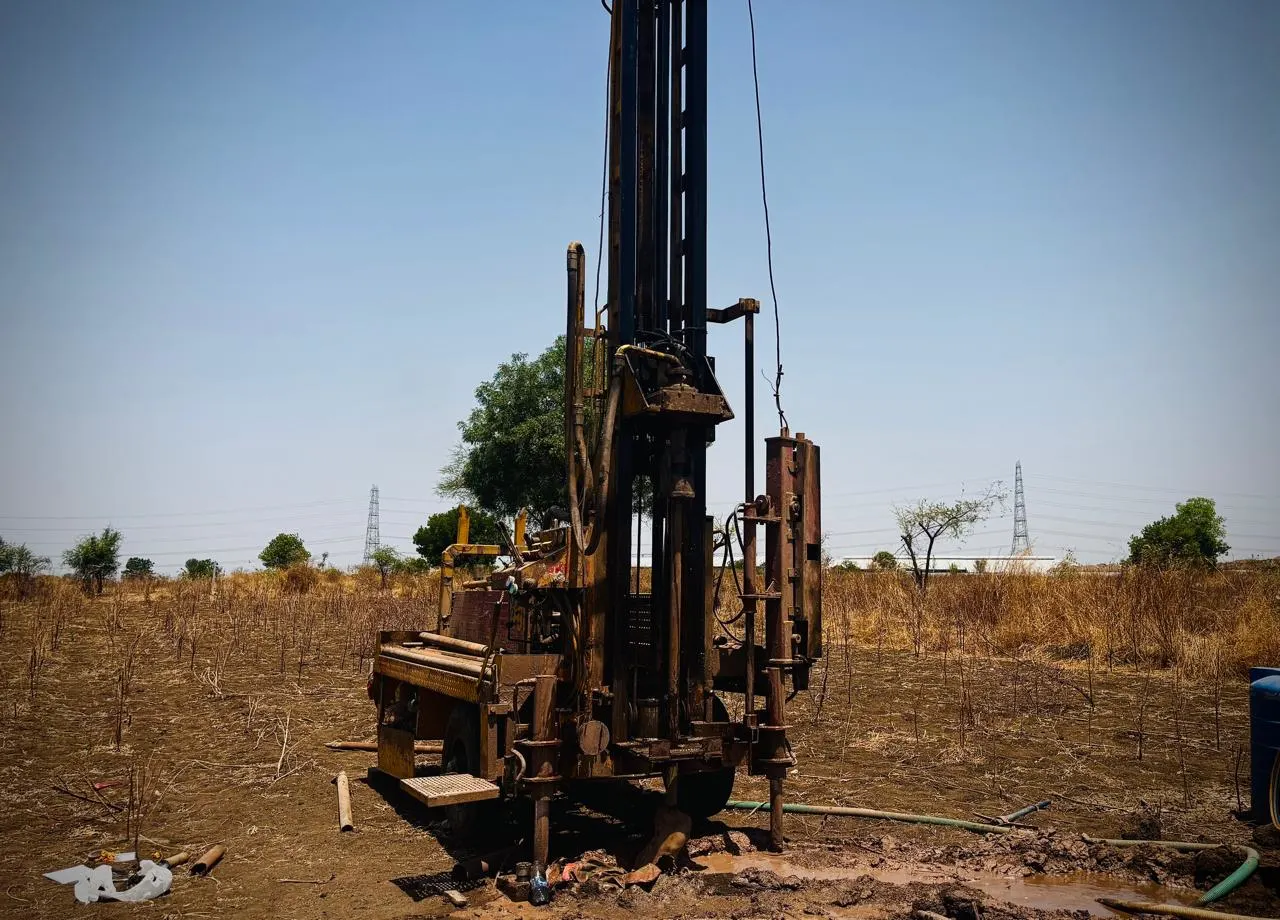
Soil Drilling with Auto-SPT & Undisturbed Sampling
Soil Drilling with Auto-SPT and undisturbed sampling collects accurate soil samples while preserving natural moisture and structure. Ideal for geotechnical investigations, foundation design, and laboratory testing, it ensures reliable data for safe construction projects.
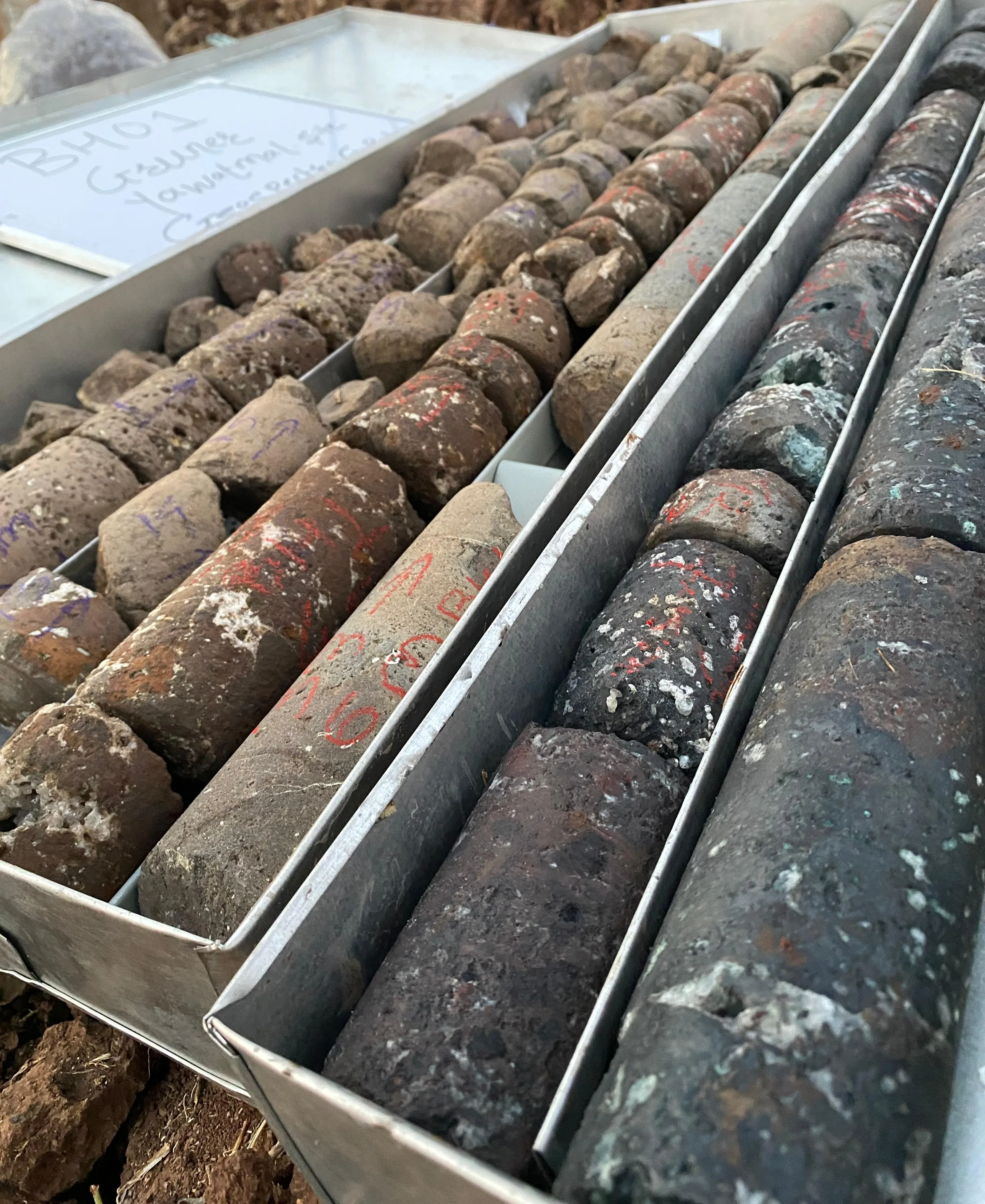
Rock Core Drilling
Rock Core Drilling provides continuous rock samples for analyzing rock strength, stability, and subsurface conditions. Used in tunnel design, foundation engineering, and geotechnical studies, it helps engineers design safe and durable structures.
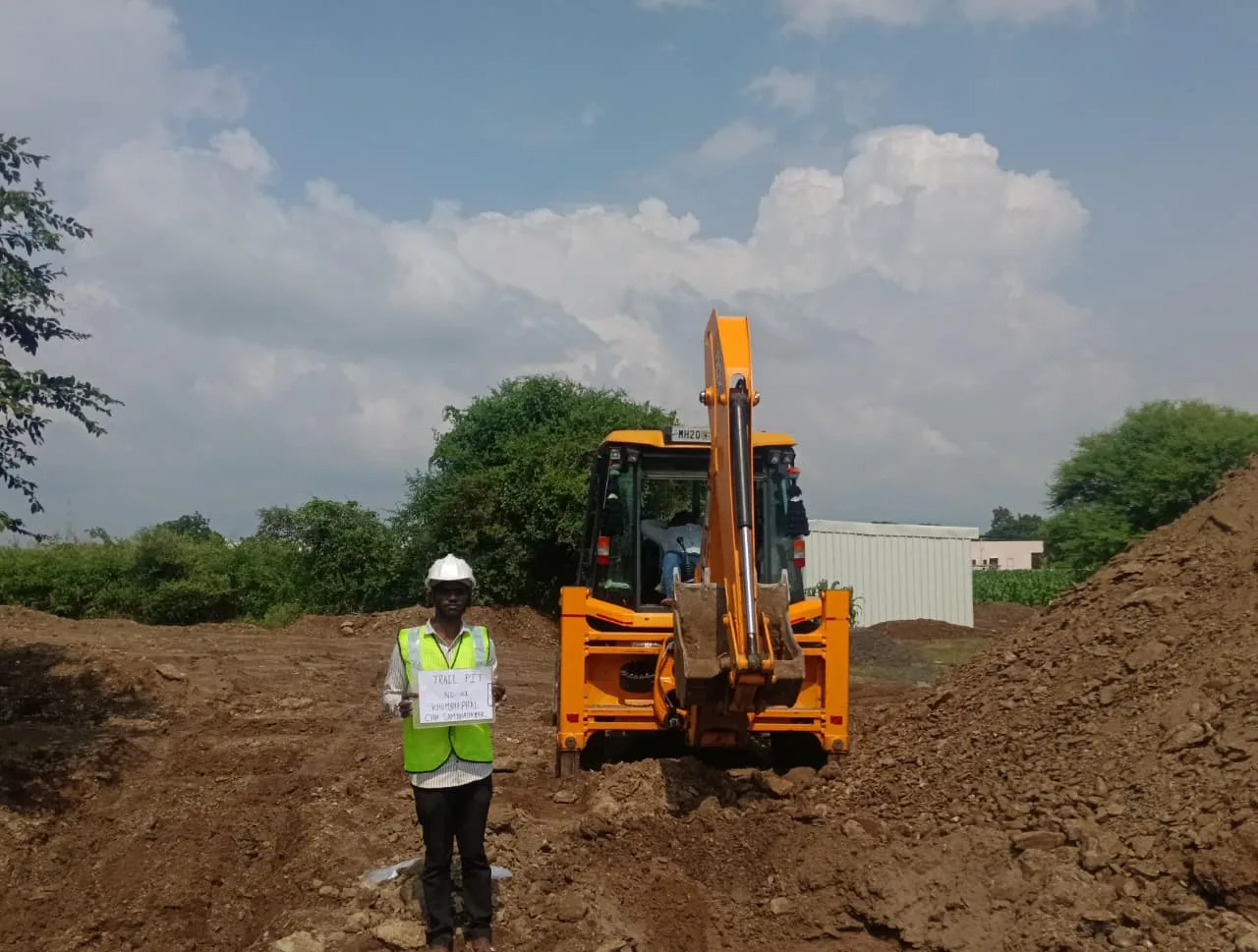
Trial Pits
Trial Pits are excavations carried out to visually inspect and assess the subsurface soil conditions, groundwater levels, and stratification. They help determine bearing capacity, foundation depth, and suitability for construction. This method provides a direct and economical approach for shallow geotechnical investigations and verification of soil profiles.
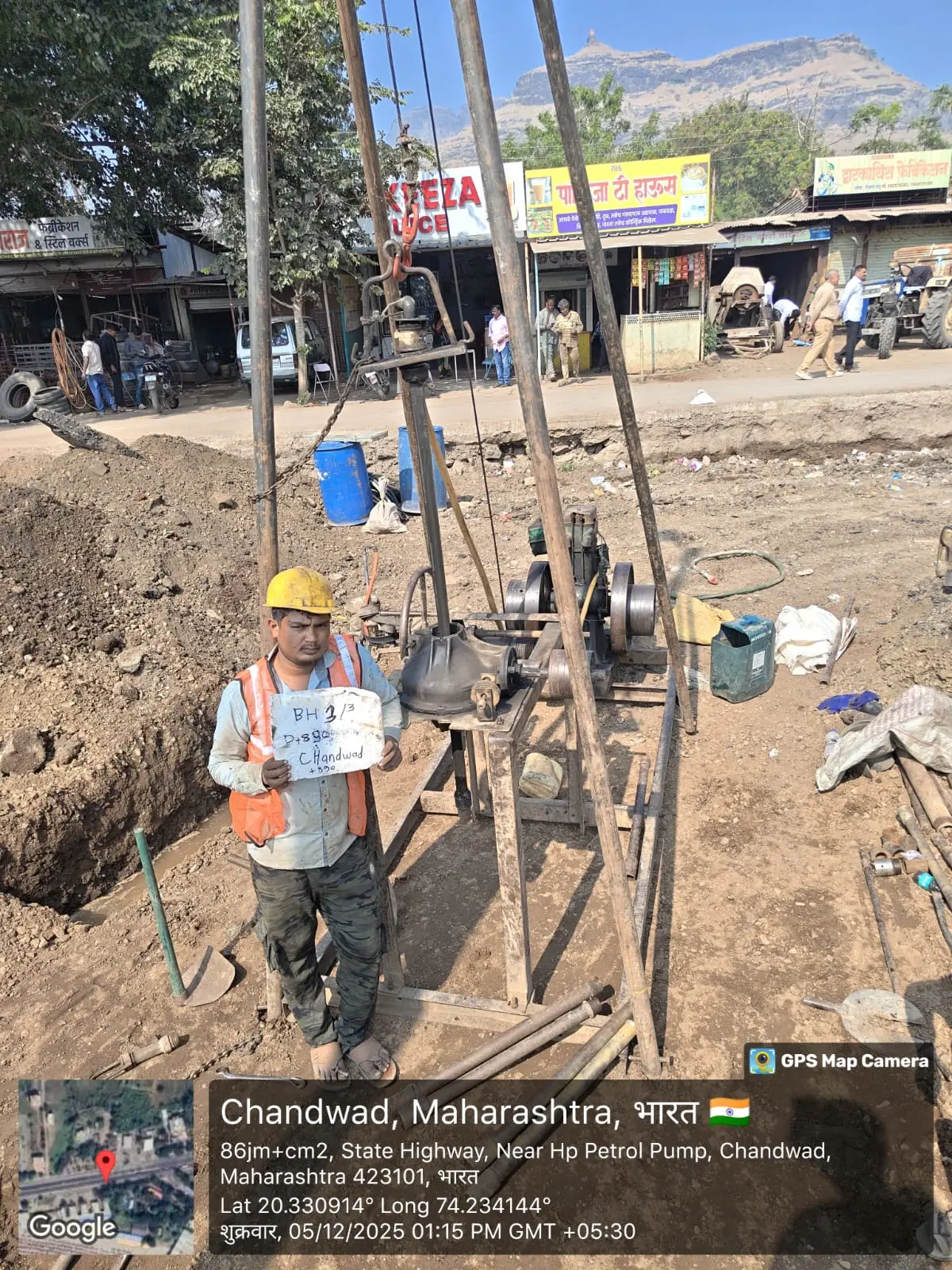
Standard Penetration Test
The SPT measures soil resistance and density to determine bearing capacity and compaction quality. Widely used in foundation design, geotechnical investigations, and civil engineering projects.
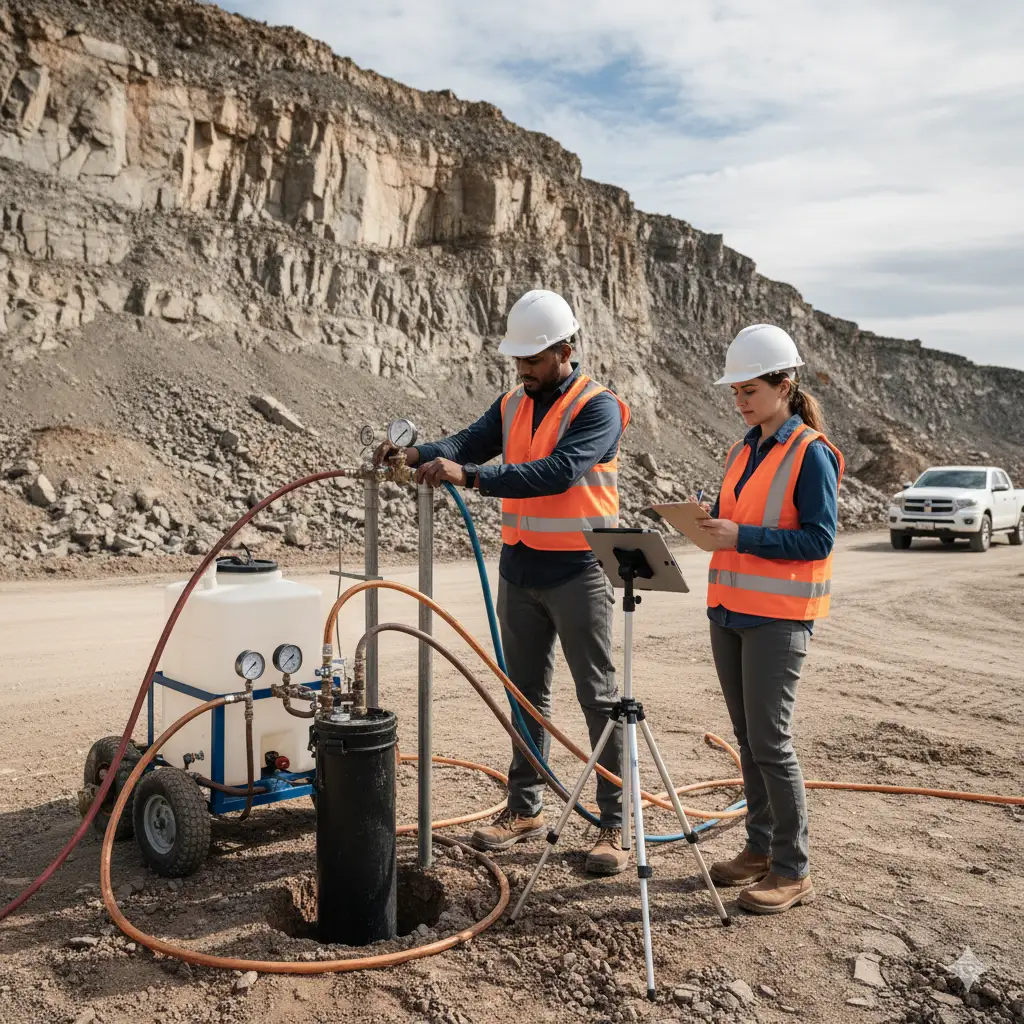
In Situ Soil & Rock Permeability Test
Permeability tests measure water flow through soil and rock layers. They are crucial for groundwater studies, drainage design, and foundation engineering, providing data on hydraulic conductivity and seepage characteristics.
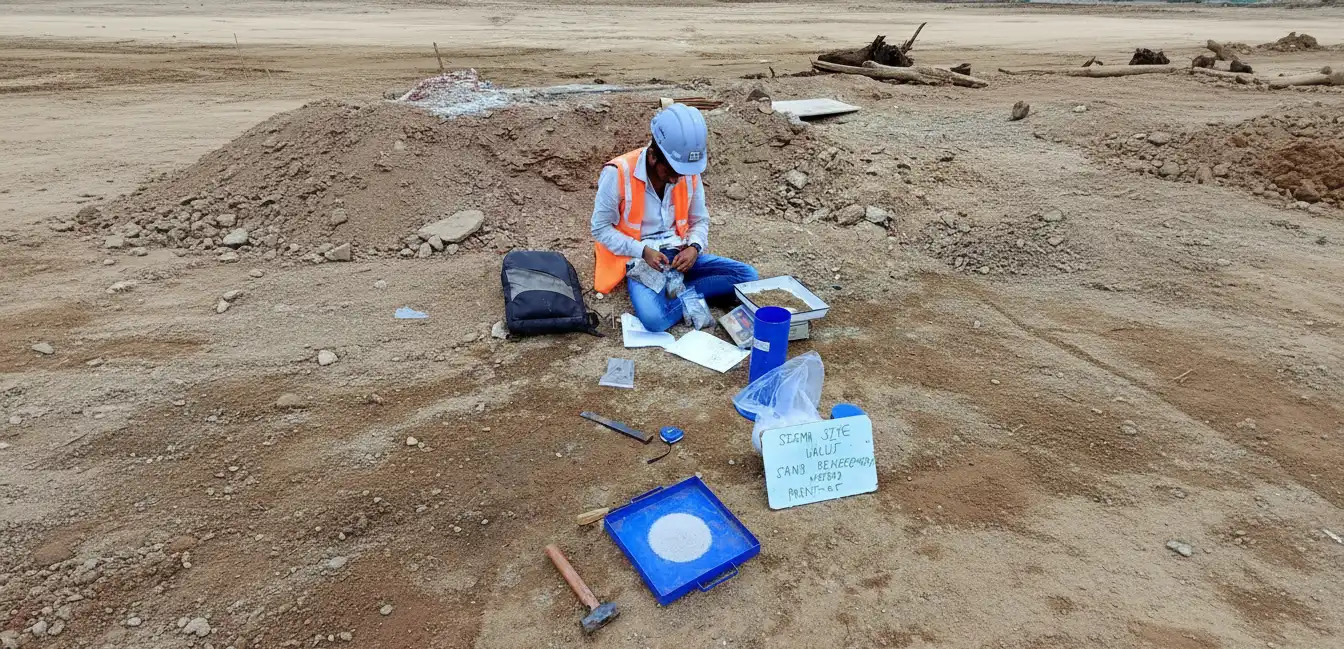
Field Density Test
Field Density Tests measure the in-place density and compaction of soil. Essential for embankments, pavements, and foundation construction, ensuring stability and long-term structural safety.
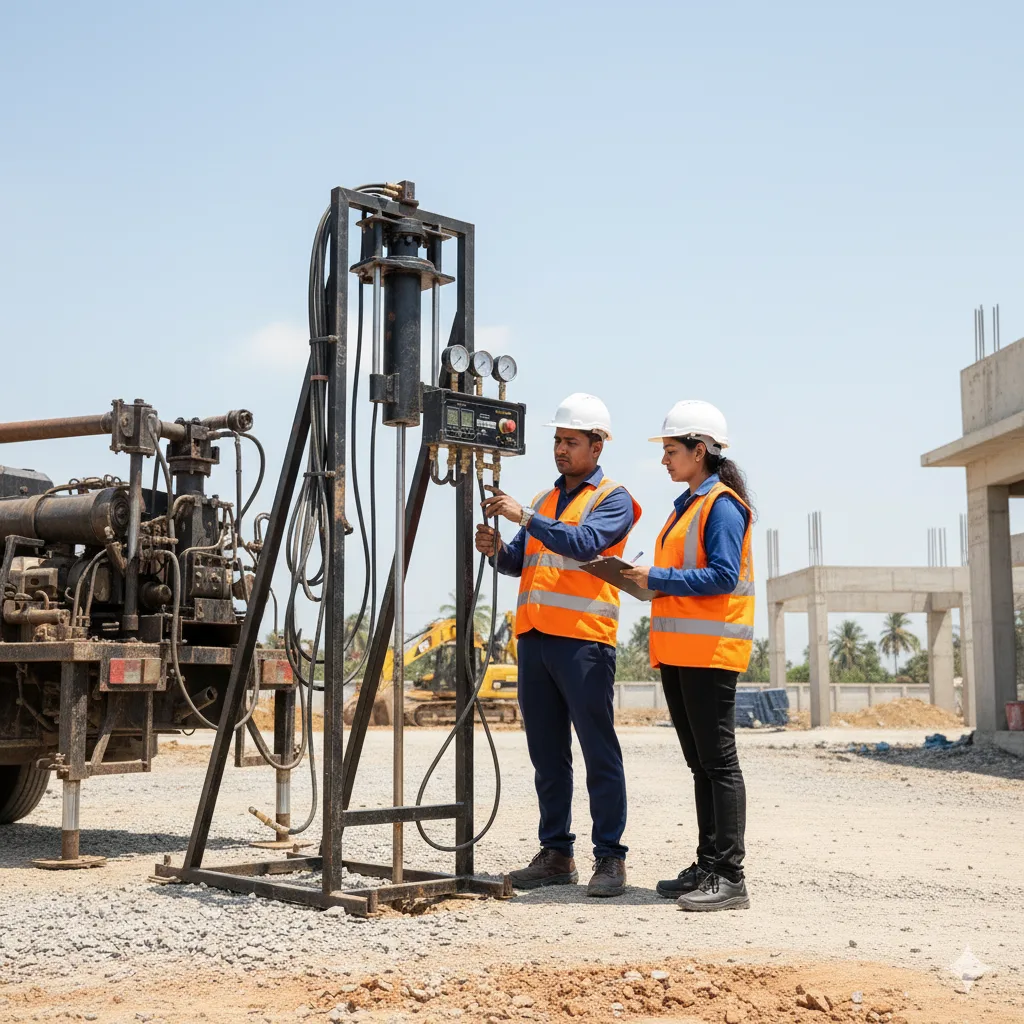
Static Cone Penetration Test
Static Cone Penetration Test evaluates soil strength, stiffness, and layer stratification. Used in foundation design, geotechnical site investigations, and structural assessment for safe and cost-effective construction.
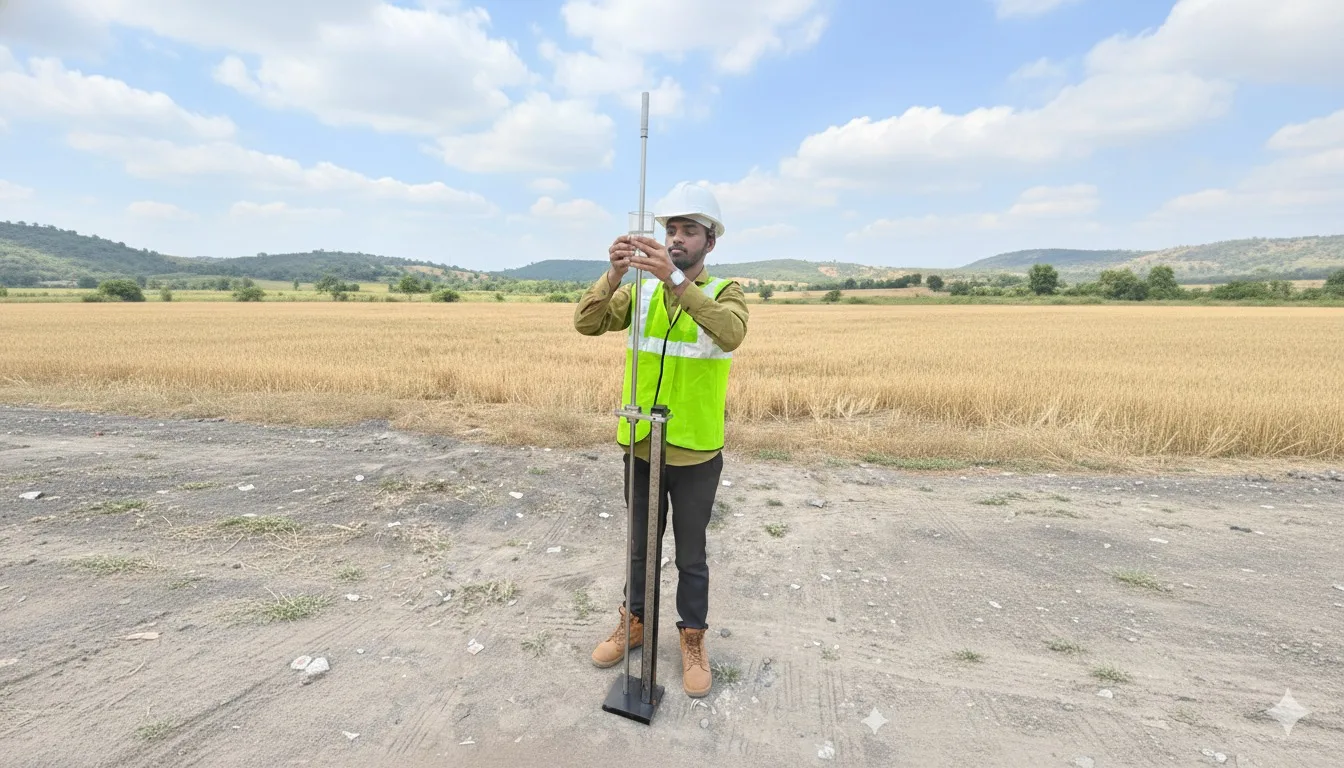
Dynamic Cone Penetration Test
Dynamic Cone Penetration Test (DCPT) measures soil penetration resistance under dynamic load. It helps assess subgrade strength, compaction quality, and soil bearing capacity, especially in road and pavement construction.
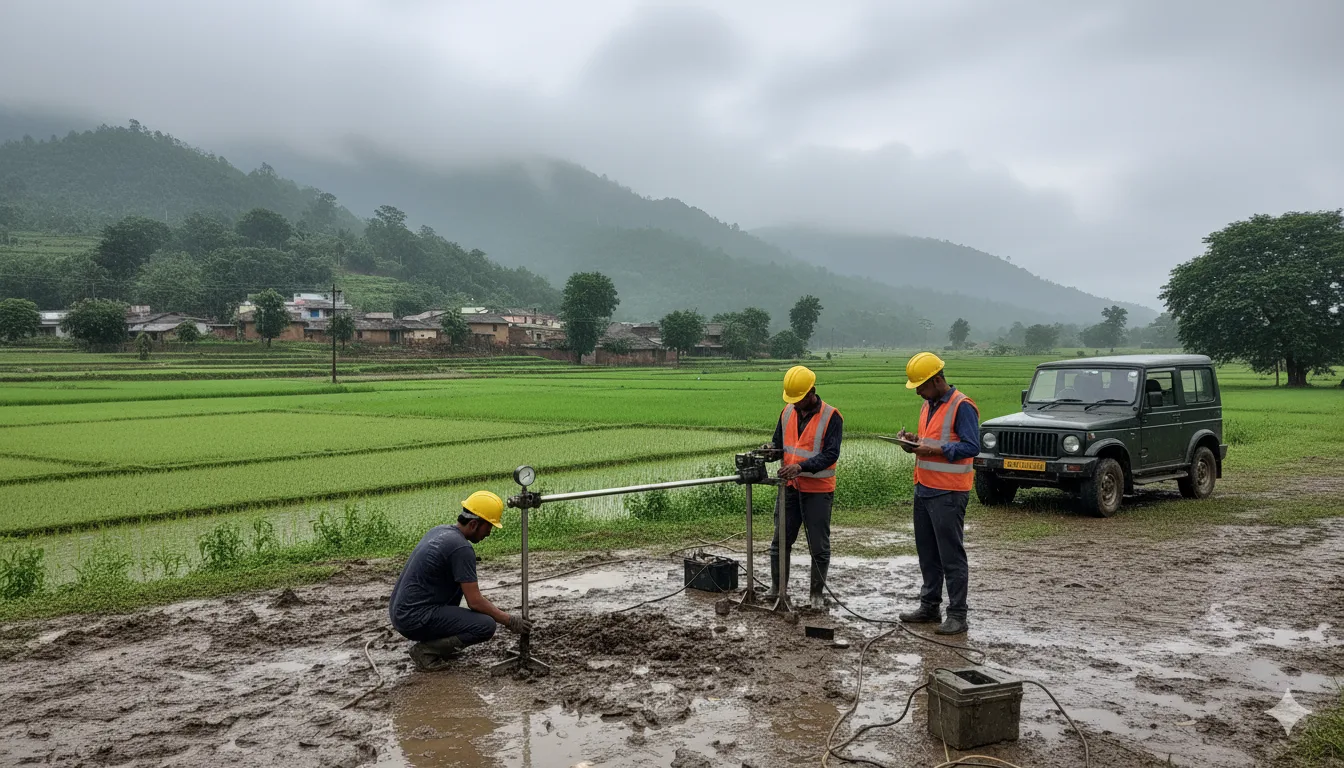
Field Vane Shear Test
The Vane Shear Test determines undrained shear strength of cohesive soils. It is widely used in slope stability analysis, foundation design, and soil stability assessments.
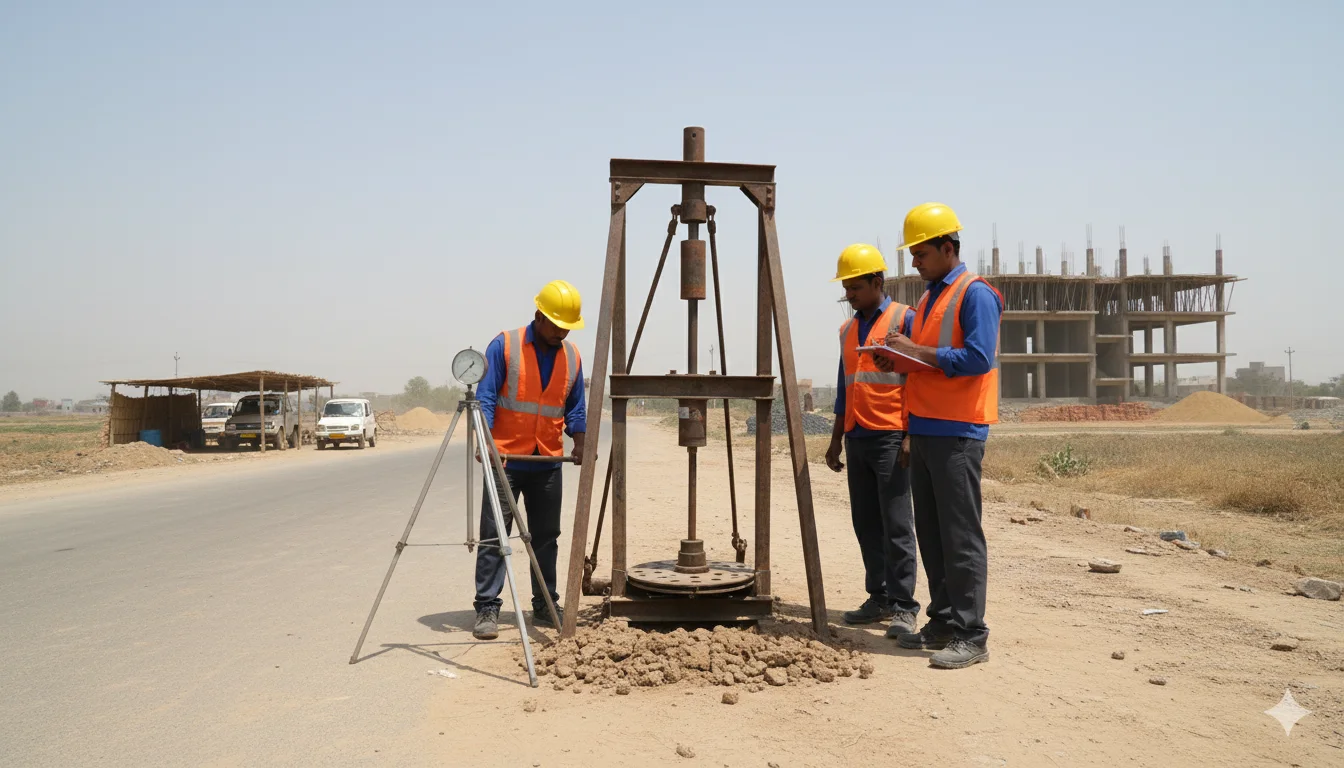
Field California Bearing Ratio Test
Field CBR tests measure the load-bearing capacity of subgrade soils. Crucial for pavement design, road construction, and embankment stability, ensuring safe and durable surfaces.
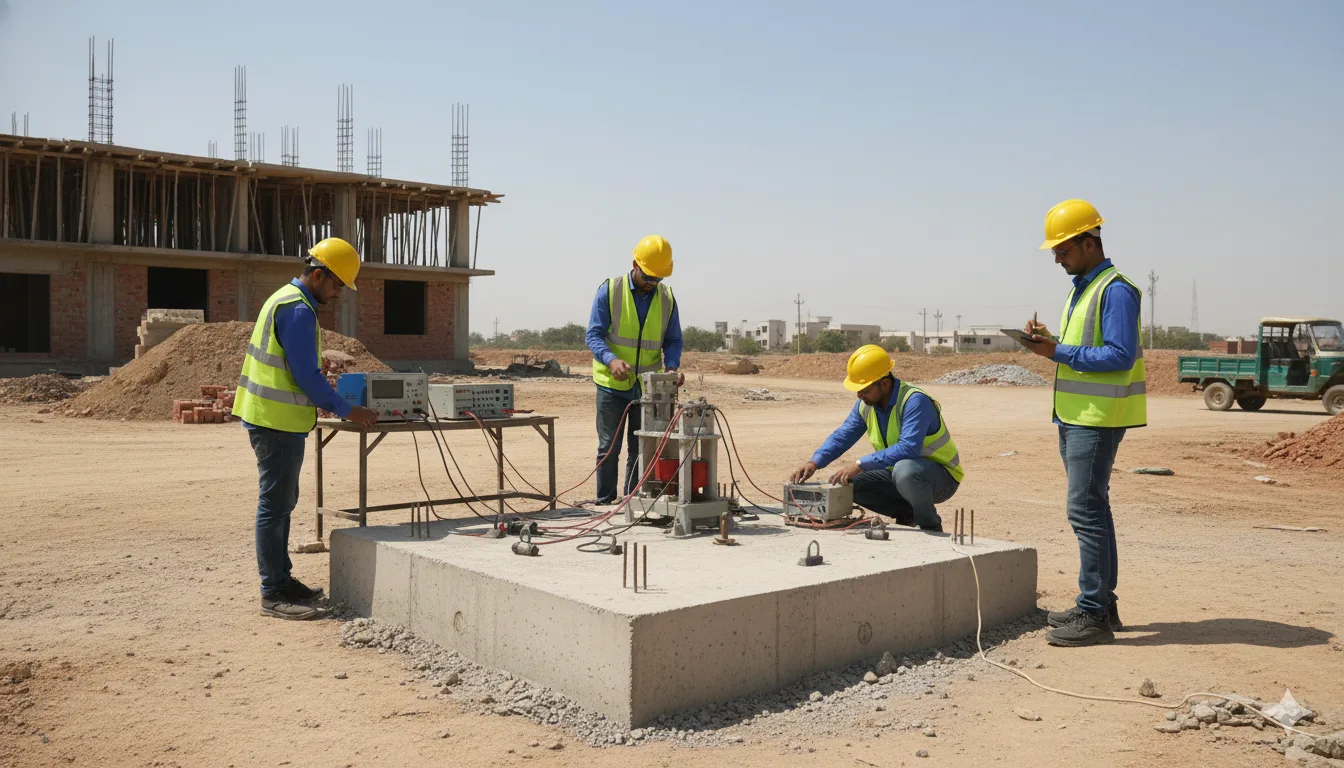
Block Vibration Test
The Block Vibration Test evaluates soil and rock response to dynamic loads. It is used in foundation design, seismic assessment, and soil-structure interaction studies.
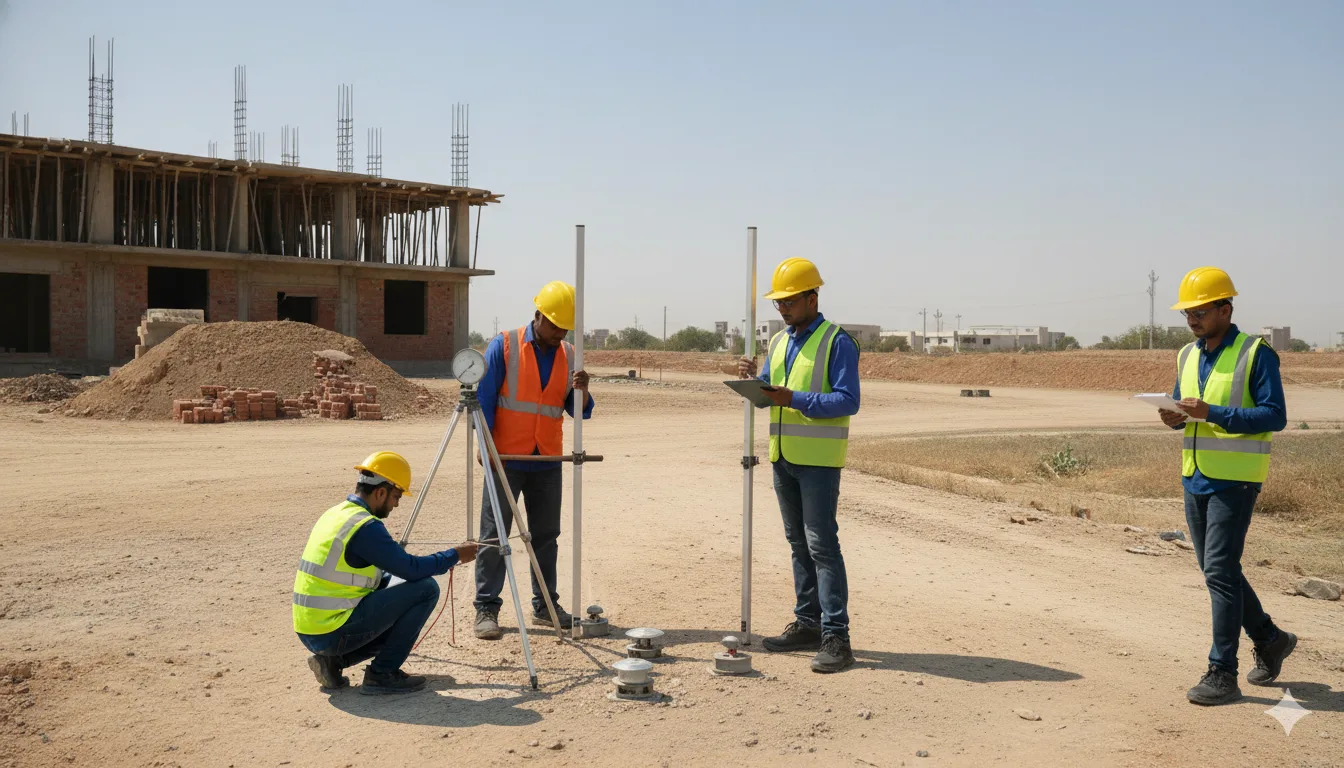
Measurement of Settlement & Heave
Settlement and Heave measurements monitor vertical soil and structure movements over time. Key for foundation monitoring, retaining walls, and construction safety, helping mitigate risks from soil consolidation or swelling.
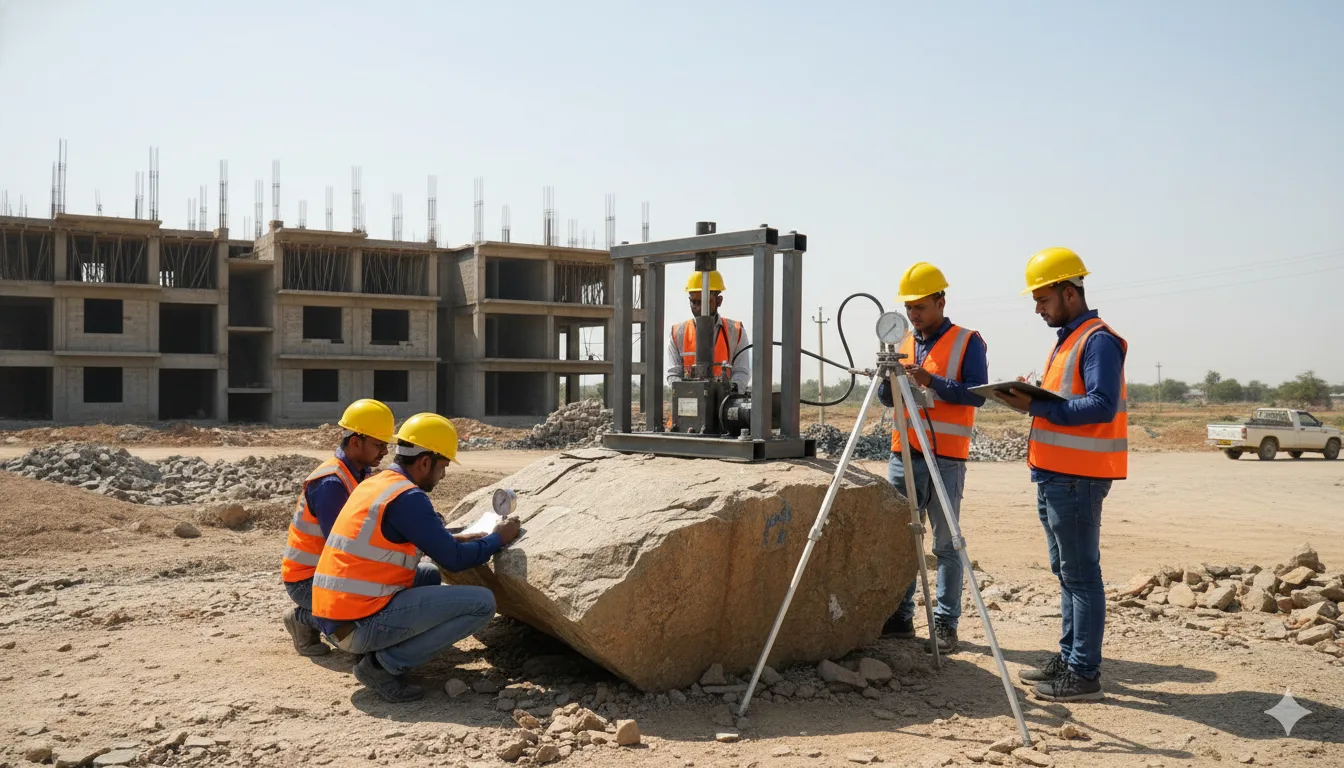
In Situ Shear Test on Rock
In Situ Shear Tests determine the shear strength of rock in natural conditions. Used in tunnel design, slope stability, and rock foundation analysis, it ensures reliable engineering data for safe construction.
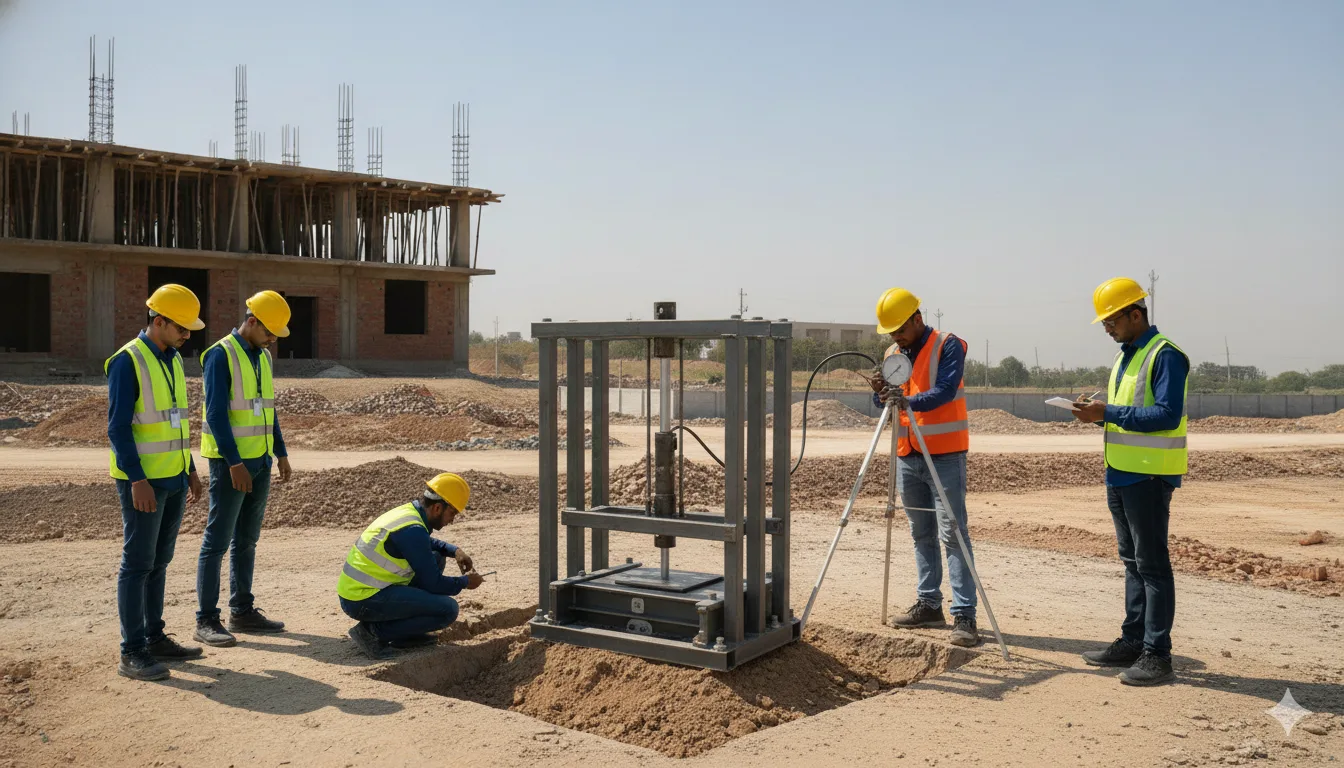
In Situ Direct Shear Test on Soil
Direct Shear Tests assess shear strength and cohesion of soil layers in the field. Important for slope stability, retaining walls, embankments, and foundation engineering, providing accurate geotechnical data.
